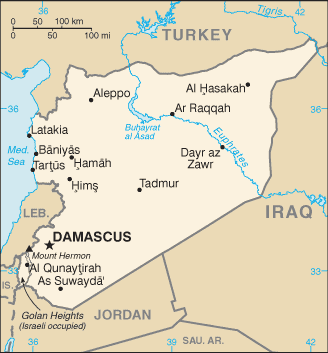With today’s Syria talks in Vienna ending relatively uneventfully, the negotiations are on hold for at least a couple of weeks. When they resume, they’ll have something that’s never before been countenanced in talks about the future of Syria: Syrian representatives.
 Diplomats say that the Syrian government and certain opposition groups will both be invited to send representatives to the talks, which will be the first time either side has been involved in the main international talks, and the first time both sides will be attending the same set of talks under any circumstance.
Diplomats say that the Syrian government and certain opposition groups will both be invited to send representatives to the talks, which will be the first time either side has been involved in the main international talks, and the first time both sides will be attending the same set of talks under any circumstance.
Throughout the civil war most of the international efforts to end the war have either been US-centric or Russia-centric, with an eye toward either of them propping up their respective allies. To the extent these joint talks have taken place involving both the US and Russia, there has been a sense they’ve been deciding how to carve up post-war Syria without getting real input from Syrians.
Still, the recent talks haven’t suggested much appetite for compromise from most of the participants, and the addition of the new factions may simply amount to more voices for everyone else to ignore while they issue their respective demands.


